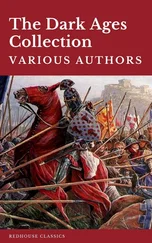The authority which the Roman see exercised in western Europe at this time, beyond its prestige and acknowledged primacy in Christendom, was twofold. Decrees of Valentinian I and Gratian had recognised it as a court to which clergy condemned by provincial synods might appeal. 46In the second place it was looked up to as a model, and when doubtful questions arose about discipline it was consulted by provincial bishops. The answers of the Popes to such questions were known as Decretals. They did not bind the bishops; they were responses, not ordinances. Appellate jurisdiction and the moral weight of the Decretals were the principal bases on which the power of the Roman see was gradually to be built up. 47
Zosimus entertained an idea of his authority which transcended these rights and anticipated the claims of his successors. Immediately after his election his ear was gained by Patroclus, the bishop of Arles, who desired to make his see an ecclesiastical metropolis of the first rank. In the three provinces of Viennensis, Narbonensis Prima, and Narbonensis Secunda, the bishops of Vienne, Narbonne, and Marseilles 48were the metropolitans; Arles was merely a bishopric in Narbonensis Prima. The idea of Patroclus was naturally enough suggested by the translation of the residence of the Praetorian Prefect of Gaul from Trier to Arles. 49Zosimus determined to deprive the bishops of Vienne, Narbonne, and Marseilles of their metropolitan rights, and to invest the bishop of Arles with jurisdiction over the three provinces. He also proposed to establish a new Metropolitan of Arles as a sort of Roman vicar, apparently over the whole of Gaul. 50
The bishop of Narbonne yielded with a protest to this revolutionary assumption of sovranty. But the bishops of Marseilles and Vienne defied Zosimus and brought the question before a council of the Milanese diocese which met at Turin (Sept. 22, A.D. 417). 51The council at first decided against the pretensions of Arles, but finally compromised by dividing the Viennese province into two parts, of which the southern was to depend on Arles. Zosimus was not pleased, but deemed it prudent to concur. The bishop of Marseilles, who declined to yield, was excommunicated by a Roman synod, but remained quietly in his see. Thus a part of the Pope’s plan was actually carried out, but the facts remained that the council of Turin had refused to recognise the supreme authority of Rome, and that Marseilles had resisted with impunity.
The indiscretions of Zosimus were a lesson for his successors. 52Moreover, they recognised that the establishment of such a large and powerful see as that which Zosimus called into being was likely to be a rival rather than a vassal of Rome. Their aim was to undo what Zosimus had done, and in accomplishing this they acted with greater circumspection and increased the authority of their see. Both Boniface and Celestine 53did what they could to restrict the powers of the bishop of Arles. The first Narbonensis was withdrawn from his jurisdiction and restored to Narbonne. 54But the situation was more difficult for Rome, because the monks of Lérins, whose influence was strong in southern Gaul, threw the weight of their interest into the scale of Arles. Their founder, Honoratus, had been elected to succeed Patroclus, and he was followed by his disciple Hilary, whose authority threatened to usurp that of Rome in the Gallic Church. 55The conflict between Hilary and Leo I, who was elected in A.D. 440, is not edifying. An appeal to Rome (A.D. 444) gave the Pope a welcome opportunity of striking his opponent. He did not venture to excommunicate him, but he deprived him of the remnant of the province which Zosimus had created. This sentence could not be executed without the aid of the secular power. He had much influence with the Emperor and Galla Placidia, and he procured an edict, which was issued (July 8, A.D. 445) at the same time as his own decree. 56Arles was deprived of its metropolitan dignity. 57
But that edict of Valentinian III did much more than settle in Rome’s favour this particular question. It assigned to the Roman see that supremacy over the provincial churches which the Popes had been endeavouring to establish, but which the African synods and the council of Turin had refused to acknowledge. 58It ordained that “the bishops of Gaul or any other province should take no decision contrary to the ancient rules of discipline without the consent and authority of the venerable Pope of the eternal city. They must conform to all the decrees of the Apostolic see. Bishops summoned before the tribunal of Rome must be compelled to appear by the civil authorities.”
It is the political bearing of this law that interests us here. When many of the western provinces had wholly or partly passed out of the Emperor’s control, it was a matter of importance to strive to keep alive the idea of the Empire and the old attachment to Rome in the minds of the provincials who were now subject to German masters. The day might come when it would be possible to recover some of these lost lands, which the Imperial government never acknowledged to be really lost, and in the meantime a close ecclesiastical unity presented itself as a powerful means for preserving the bonds of sentiment, which would then prove an indispensable help. To accustom the churches in Gaul and Britain, Spain and Africa to look up to Rome and refer their disputes and difficulties to the Roman bishop was a wise policy from the secular point of view, and it was doubtless principally by urging considerations of this nature that Leo was able to induce the government to establish the supremacy of his see.
It is important to bear in mind that the administrative authority of the Pope, at this time, extended into the dominions of the eastern Emperors. The lands included in the Prefecture of Illyricum belonged to the Patriarchate of Rome, and constituted the Vicariate of Thessalonica, where the Pope’s vicar, who was entrusted with the administration, resided. Theodosius II wished to place this ecclesiastical province under Constantinople and published an edict with this intent, but the remonstrances of Honorius induced him to retract it; 59and Greece, Macedonia, and Dacia remained under the see of St. Peter till the eighth century.
§ 3. Persecution of Paganism
Persecution was an unavoidable consequence of Constantine’s act in adopting Christianity. Two of the chief points in which this faith differed from the Roman State religion were its exclusiveness and the vital importance which it assigned to dogma. The first logically led to intolerance of pagan religions, the second to intolerance of heresies, and these consequences could not be averted when Christianity became the religion of the State. It might be suggested that Constantine would have done better if, when he decided to embrace it and favour its propagation, he had been content to deprive pagan cults of their official status and to allow Christianity to compete in a free field with its rivals, aided by the prestige which it would derive from the Emperor’s personal adhesion and favour. But such a policy would have been an anachronism. A state, at that time, was unthinkable without a State cult, and if an Emperor became a Christian a logical result was that Christianity should be adopted as the official religion of the Empire, and a second that the old Roman policy of toleration should be thrown overboard. In an age of superstition this was demanded not only in the interest of the Church but in the interest of the State itself. The purpose of the official cults in the pagan State was to secure the protection of the deities; these were liberal and tolerant lords who raised no objection to other forms of worship; and toleration was therefore a principle of the State. But the god of the new official religion was a jealous master; he had said, “thou shalt have none other gods before me,” and idolatry was an offence to him; how could his protection and favour be expected in a state in which idolatry was permitted? Intolerance was a duty, and the first business of a patriotic ruler was to take measures to extirpate the errors of paganism.
Читать дальше












